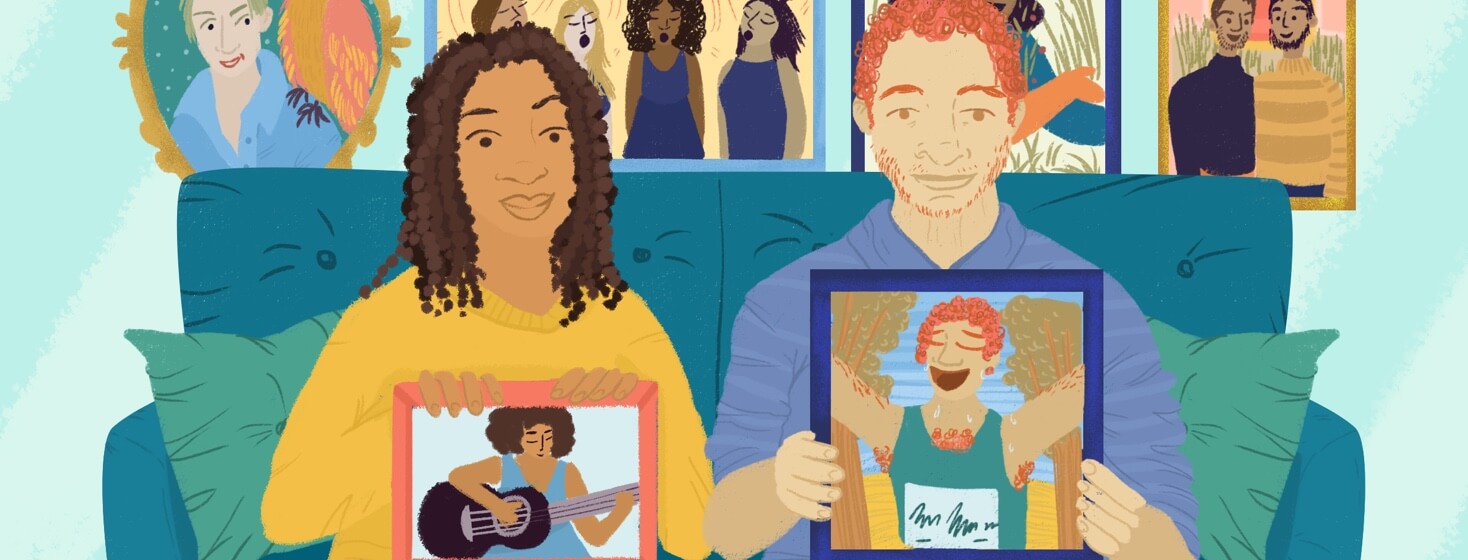Schizophrenia: Beyond Our Diagnosis
Like many people with schizophrenia, I am relatively isolated. I am married, so I often have face-to-face contact with another person (except when my partner travels). But I would like to have more friends and build more community. Wanting to meet other people, join groups, and foster community often makes me fearful and insecure about what others will do and what they will think of me when they find out I have schizophrenia.
That is why I try to do things on my good days that give me more identities than simply being a person with schizophrenia.
Pursuing well-rounded hobbies
I'm more than the diagnosis of schizophrenia. My husband knows that, and my family members know that, but if I don't cultivate other things in my life, it will lead me to have very little to talk about when I have the opportunity to meet new people. That is why, on my best days, I try to pursue hobbies or knowledge or attend meetings or events that make me well-rounded.
Being well-rounded isn't always an easy thing to become. I have to spend a significant amount of time managing and living with the symptoms of my diagnosis, and on some days, it eats up 24 hours of my time, but on good days, the attention I have to give to my illness is far less than that. Taking out the time I need to sleep, eat, rest, and exercise (all done to better my treatment outcomes), I often have 12 hours left to focus on building part of my life or identity that has nothing to do with mental illness.
Schizophrenia can cause low motivation
I'm not hyper-productive because I struggle with the symptoms of a lack of motivation. Still, even with that obstacle, I have time and energy to read something that teaches me something (broadens my interests and education). Reading is also suitable for building my vocabulary and helping to make me a better writer by seeing how successful writers string together their words.
Many things beyond reading can help me focus on creating other identities for myself besides the identity of someone who has schizophrenia. I can spend time painting, sculpting, lifting weights, sewing, and knitting. (I don't know how to do many of these things. I'm simply using them as examples.) Someone in good health can start a weightlifting hobby/habit and move on to compete, make friends, or find community around that activity. Forming this new hobby gives them the identity of a weight lifter, along with someone who has a mental illness.
It's also possible for someone to learn to sew (YouTube has videos that teach almost everything) and then open an Etsy shop and become a clothing designer. Writing short stories, a memoir, a novel, essays, and poetry is also possible, giving someone the identity of a writer.
This or That
Do you struggle with low motivation?
Tell your own story, create your own identity
All of these things can help us create alternative narratives for ourselves so that when we are telling ourselves or others about the story of us, it isn't just a story of illness or symptoms. The more we can be adventurous, the more likely schizophrenia won't even be the first or biggest story we tell about ourselves. There is so much more to us than a diagnosis, and showing other sides of ourselves helps to smash stereotypes and stigma – always a good outcome.
